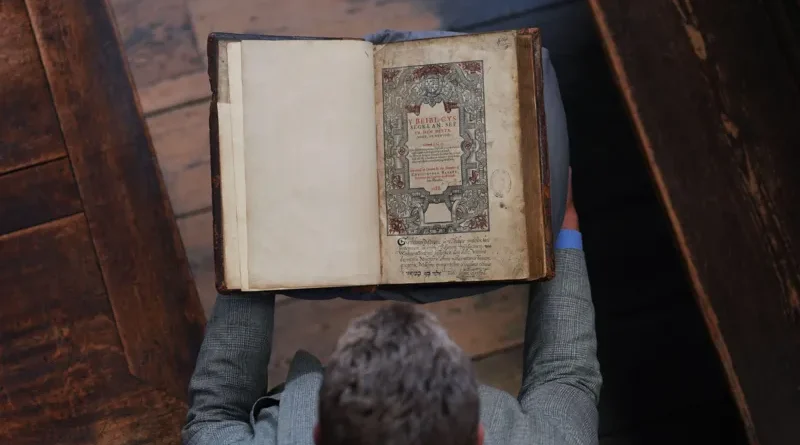Historic 1588 Welsh Bible Returns to Wales for the First Time
A landmark piece of Welsh Christian heritage has made its way home for the first time in nearly five centuries. The first complete translation of the Bible into Welsh, originally published in 1588 by Bishop William Morgan, is now on display at St David’s Cathedral in Pembrokeshire. The historic book, which belongs to Westminster Abbey’s Library, will remain in Wales until July 9.
This visit marks the Bible’s first-ever return to Welsh soil since it was printed. Bishop Morgan oversaw its production while staying at Westminster Abbey’s Deanery in London. His work became the standard Welsh translation, drawn from earlier versions and refined for public worship.
The Dean of St Davids, Rev. Dr Sarah Rowland Jones, called the display a deeply symbolic moment. “It seems fitting that its first visit to Wales should be here, to the home of our patron saint,” she said. “This Bible is a uniquely valuable treasure in our shared heritage of faith and language.”
The Bishop of St Davids, the Right Rev. Dorrien Davies, described the Bible as “a special treasure of the Welsh language”. The translation played a key role in preserving and promoting the Welsh tongue during the rise of the English Reformation.
ALSO READ: World’s Highest IQ Holder Declares Jesus Christ Is God
Tony Trowles, head of the Westminster Abbey Collection, said the 1588 edition is in “remarkably good condition”, unlike most surviving copies in Wales, which saw daily use and suffered damage over time. “The plan was for every chapel and church in Wales to have one,” he noted.
Westminster Abbey’s copy bears a Latin dedication to Gabriel Goodman, a Welsh dean and friend of Morgan. It had been a gift to the abbey and was historically chained to the library shelves to prevent theft.
The Bible was last seen publicly in 1988 during a rare appearance at St Benet Paul’s Wharf in London. This current exhibit is the first opportunity for the Welsh public to view the original text within their homeland.
Organisers say the Bible’s visit serves as a celebration of both religious tradition and linguistic identity.
Content Credit: Ajibola Emmanuel
Image Credit: BBC News.com




